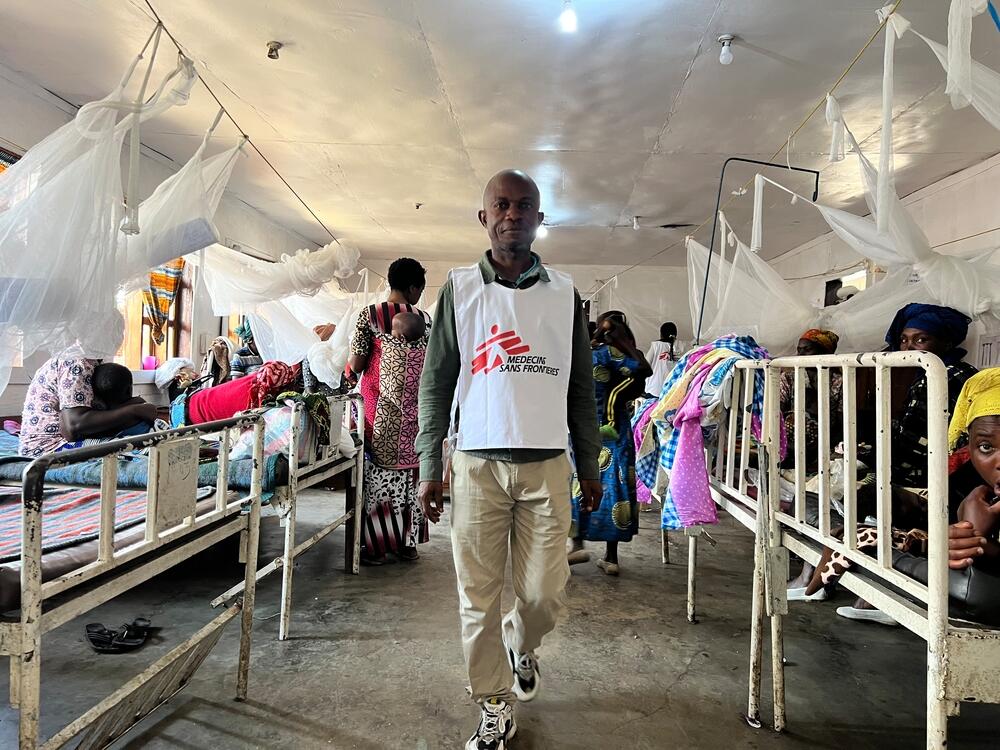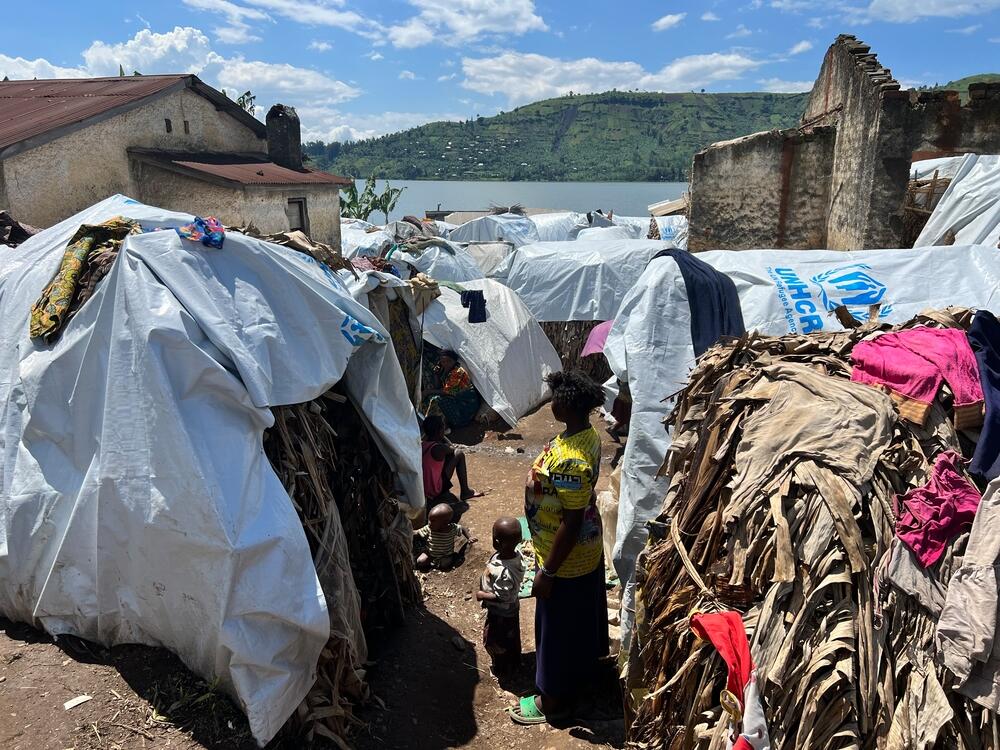DRC: Civilians and hospitals caught in crossfire as North Kivu violence escalates
In the Democratic Republic of Congo (DRC), medical facilities supported by teams from Médecins Sans Frontières / Doctors Without Borders (MSF) have received huge influxes of war-wounded patients as thousands of people flee the latest waves of armed clashes in the eastern province of North Kivu.
With civilians and medical facilities caught in the crossfire, MSF urgently calls on all parties to the conflict to ensure the safety of patients, medical staff and health facilities, the protection of civilians, and unhindered access for humanitarian organisations.
Since 22 January, following an escalation in clashes between various armed groups in the area, some 10,000 people have fled their homes in and around Mweso, in Masisi territory, and sought refuge in Mweso General Hospital.
In January, and notably in the past two weeks, MSF teams at the Ministry of Health-run hospital have treated around 67 war-wounded people, mostly for gunshot wounds and injuries from explosions. More than 50 of these patients were civilians, including 21 children under the age of 15.
As well as this, MSF teams have provided displaced people with psychological support and distributed temporary shelters, water filters and soap.
Explained: What’s happening in North Kivu?
Since March 2022, there has been an upsurge in armed clashes in the DRC’s North Kivu province, linked to the resurgence of the M23 movement.
This has forced more than one million people from their homes and caused a humanitarian disaster in a province already devastated by more than 30 years of armed conflict and mass displacement.
In the ‘health zones’ of Mweso and Masisi, MSF teams have been supporting hospitals and healthcare centres to provide medical care and humanitarian aid to people affected by the violence in an area where around 300,000 people were displaced in February 2023.
Now, with fighting intensifying in Mweso over recent days, the number of people sheltering in the hospital has reduced and many people are fleeing the area towards Kitshanga, Katsiru, Nyanzale, Pinga, Kalembe and Kashunga.
However, at least 2,500 people, including children whose parents have been killed, continue to shelter in Mweso Hospital.
“The situation is extremely concerning,” says MSF project coordinator Çaglar Tahiroglu.
“The hospital is overwhelmed, with thousands of people crowded inside, trying to find some protection from the fighting. Alongside the Ministry of Health, we are doing our best to help everyone, but we do not have enough necessities, such as food.”
Conflict spilling over to the south
Across the border in South Kivu province, where almost 155,000 people have been displaced since December 2022 according to the UN, the recent clashes have caused a new wave of displacement.
In recent days, several thousand panicked people have arrived in the border town of Bweremana as well as in Minova, further south.
At the MSF-supported Minova General Hospital, medical staff treated around 30 injured people between 2 and 6 February, including four children, 10 women and 12 people requiring surgery.
Added to this, the road between North Kivu’s capital, Goma, and the town of Shasha, 17 miles to the west, is currently impassable due to the fighting. This means people are being referred from health centres in the southern part of North Kivu to Minova General Hospital and other facilities which is overwhelming them with patients, including rising numbers of survivors of sexual violence.
“Today, health facilities in Minova are overwhelmed and are facing shortages of essential medicines to treat common conditions such as malaria, diarrhoeal diseases, malnutrition and respiratory infections,” says Rabia Ben Alí, MSF emergency coordinator in South Kivu.
“Over the past four weeks, we have seen the number of weekly cases of sexual violence treated at the hospital in Minova doubling.”
Caught in the crossfire
As fighting intensifies and approaches the cities of Mweso and Minova, the safety of civilians, medical staff and patients is in increasing jeopardy.
In Mweso city centre, several houses have been hit by explosives, killing civilians. In the week of 22 January alone, an estimated 20 people were killed, including one child, while a further 41 were injured.
In the last week of January, bullets from crossfire hit the MSF base and Mweso Hospital, injuring one caregiver. And, on 2 February, the area between Mweso Hospital and the MSF base was hit by an explosive.
Concerned for the safety of our teams, MSF has decided to temporarily relocate some staff from Mweso and Minova.
"We continue to provide support, mostly remote, to Mweso Hospital, as well as to nine health centres in the area,” says Tahiroglu.
“MSF staff will return as soon as the security situation allows. However, we cannot provide medical care under these conditions, where healthcare facilities are not protected and medical staff are caught in the crossfire.”

Help us prepare for the next emergency
MSF in the Democratic Republic of Congo
The second-largest country in Africa by area, the Democratic Republic of Congo (DRC) is riven by conflict. It has endured decades of multiple overlapping crises and severe limitations in medical capacity.
In DRC, Médecins Sans Frontières/Doctors Without Borders (MSF) continues to run some of its largest programmes, working in 19 of the country’s 26 provinces.

